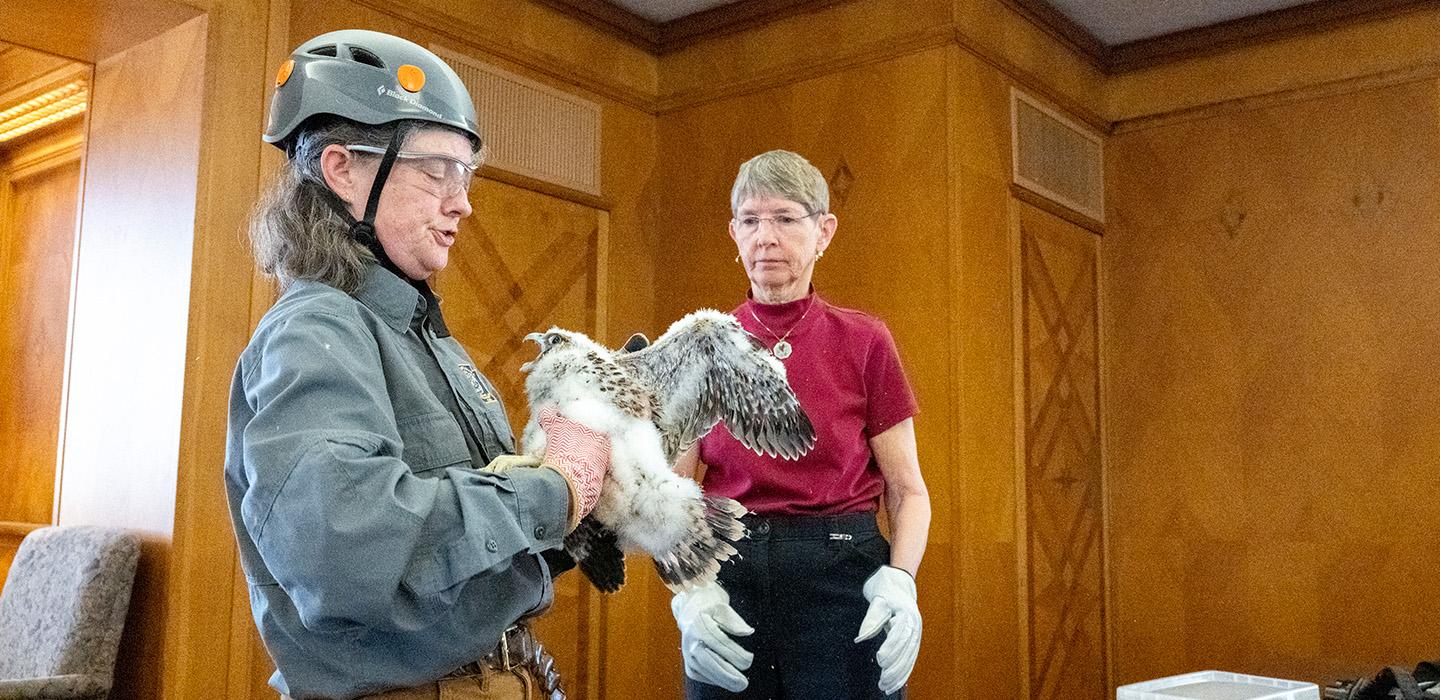
Subscribe to Pittwire Today
Get the most interesting and important stories from the University of Pittsburgh.On May 21, three of the University of Pittsburgh’s newest arrivals received IDs, and they didn’t even have to stop by Panther Central. The peregrine falcon chicks, offspring of Cathedral of Learning residents Carla and Ecco, were scooped from their nesting box and banded by the Pennsylvania Game Commission.
Scientists can learn a bird’s life history by data collected via these bands, including how long it lives, its breeding rate and how far it travels from its natal site, said endangered bird biologist Patti Barber.
Wearing a hard hat, safety goggles and gloves, she whisked the young birds into a conference room on the 40th floor of the Cathedral of Learning, only a few feet from their home. There, Barber performed a health check, including a body scan for lice and parasites and a weigh-in. The chicks were issued a clean bill of health.
The birds were then banded on each leg — on one leg, an aluminium band stamped with a unique code tracked by the Bird Banding Laboratory, a scientific program managed by the U.S. Geological Survey; on the other, a green and black band with a short alphanumeric code, so observers can readily tell the chicks apart.
The height and isolation of urban structures like the Cathedral of Learning emulate the steep cliffsides peregrine falcons use for nesting in the wild. The local pigeon population and nearby Schenley Park provide plenty of food to support nesting pairs and their young.
Multiple pairs of peregrine falcons have made the Cathedral their home. The first and longest resident was Dorothy, who nested with her mate, Erie, in 2001.
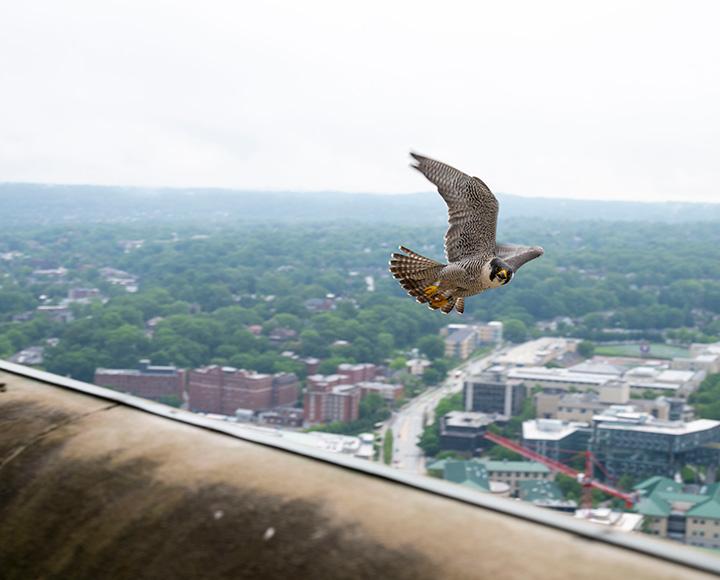
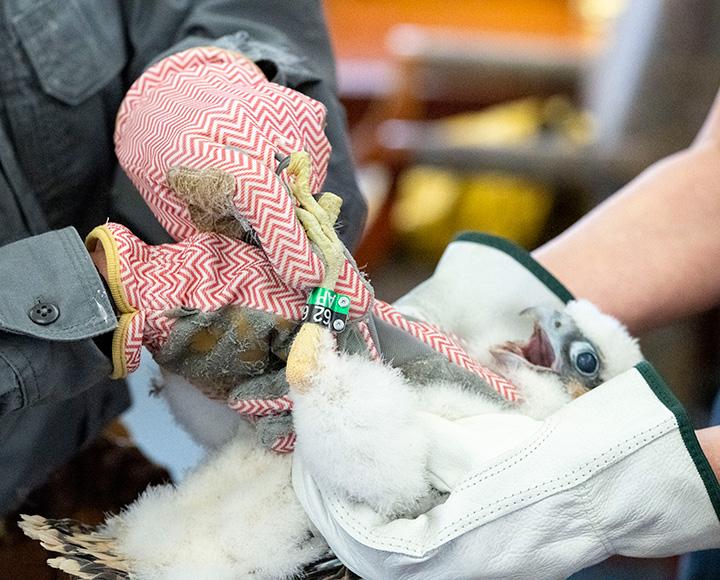
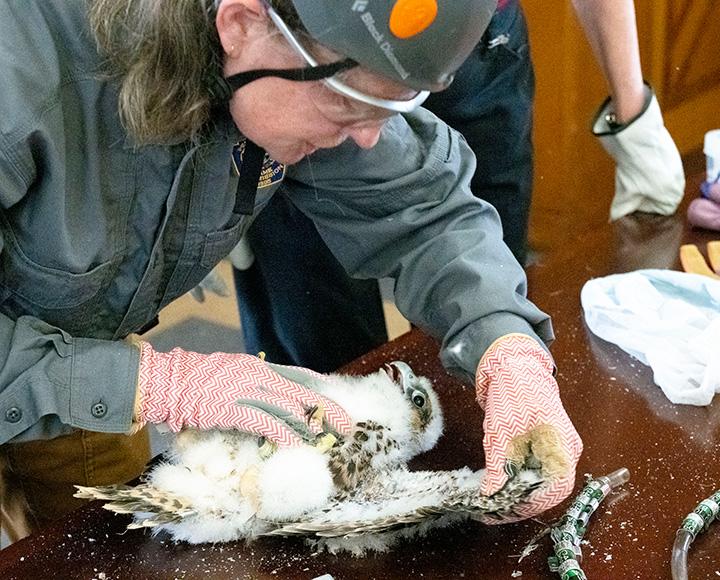
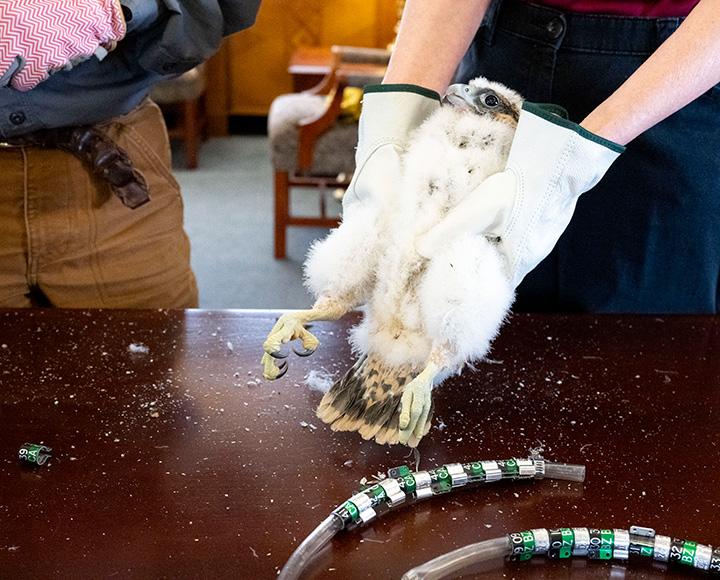
According to a website maintained by the Pennsylvania Game Commission, by 1961, peregrines no longer nested in Pennsylvania or anywhere in the eastern United States — a result of widespread use of DDT and other pesticides, egg collecting and hunting. After a concentrated effort to save the species, peregrine falcons were removed from Pennsylvania’s Endangered/Threatened Species list in 2021.
You can livestream the chicks’ progress on the National Aviary Peregrine FalconCam, a partnership between Pitt IT, facilities management and the National Aviary.
Photography by Tom Altany


